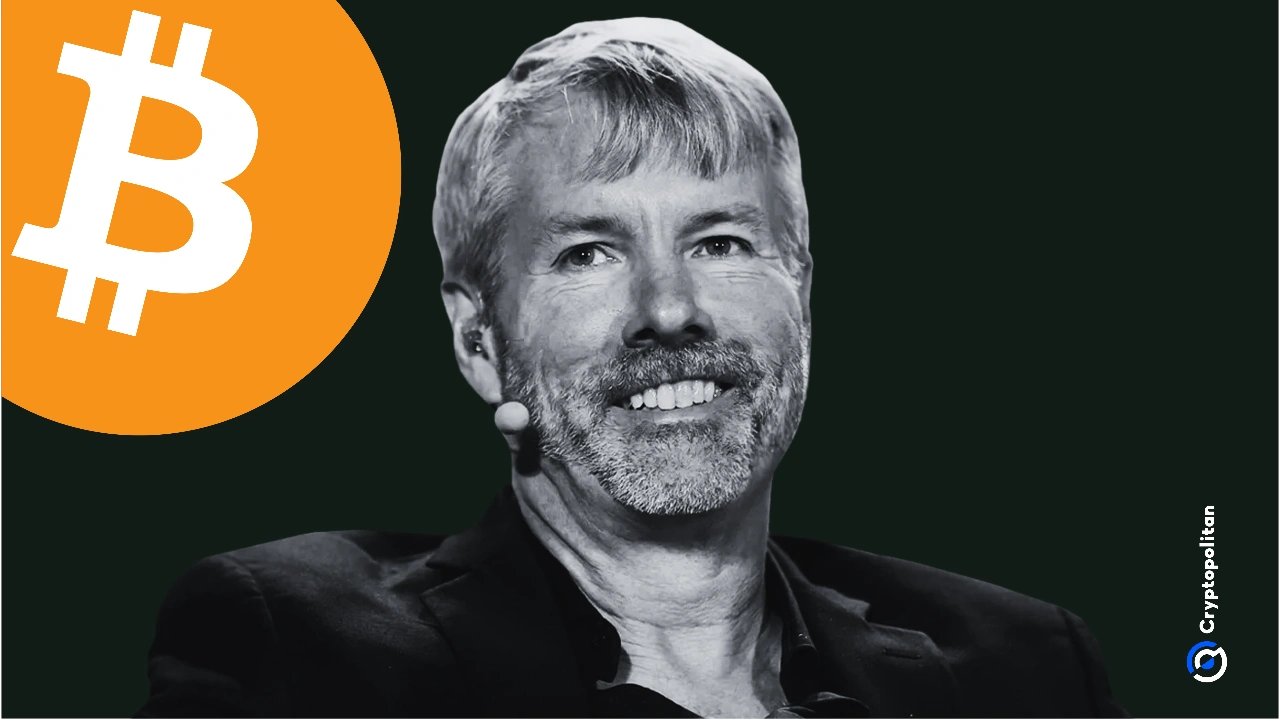Michael Saylor, the chairman of MicroStrategy, just put out a framework directed squarely at helping Trump’s administration figure out its crypto policies.
According to Saylor, it is:
“A strategic digital asset policy that can strengthen the US dollar, neutralize the national debt, and position America as the global leader in the 21st-century digital economy—empowering millions of businesses, driving growth, and creating trillions in value.”
What’s in the framework?
Saylor’s framework starts by breaking down digital assets into six crystal-clear categories based on how they work, what they’re for, and what backs them up. Bitcoin? That’s a “digital commodity”—no issuer, no middleman, just pure decentralized power.
Then you’ve got digital securities (think stocks and bonds), digital currencies tied to fiat money, digital tokens for utility in ecosystems, digital NFTs for unique ownership of stuff like art, and digital ABTs, which are backed by physical things like gold or oil.
The framework also lays out the rights and responsibilities of everyone in the digital economy—issuers, exchanges, and asset owners. He’s calling for a global, real-time system for creating, trading, and owning digital assets.
Here’s how it works: issuers are responsible for fair disclosures and ethical behavior while keeping the right to create new digital assets. Exchanges get the green light to trade and transfer assets but have to stay transparent, protect clients’ funds, and avoid shady conflicts of interest.
Owners? They get to self-custody and trade their assets but need to follow local laws. This means civil and criminal accountability is baked right in, so everyone knows the rules—and the consequences.
Saylor’s third big move? Making regulations practical. He also wants the industry itself to lead compliance. Exchanges would handle collecting and publishing data, taking the pressure off overloaded regulators.
Plus, he’s all about cost caps: compliance costs shouldn’t top 1% of assets under management, and yearly upkeep shouldn’t go over 0.1%. He’s even proposing streamlined issuance processes where regulators back off and let exchanges take the wheel.
A digital capital revolution?
Saylor’s also talking about issuers creating digital assets in days, not months, slashing costs from tens of millions to just tens of thousands. This could open up capital markets to everyone—from small businesses and artists to mid-sized companies that never had a shot.
Tokenized assets could cover everything from commodities and real estate to art and intellectual property, giving investors a ton of new ways to make money. Saylor’s betting this approach could unlock trillions of dollars in value, leveling the playing field and making finance way more inclusive.
Saylor ties it all back to the U.S. leading the crypto game, just the way Trump wants. He sees the U.S. dollar becoming the dominant global reserve digital currency, with the market jumping from $25 billion to $10 trillion. That kind of growth could pump demand for U.S. Treasuries, boosting the country’s financial clout.
He’s also got big plans for global digital capital markets, projecting growth from $2 trillion to $280 trillion—with U.S. investors snagging most of the pie.
Beyond Bitcoin, Saylor’s saying digital assets could hit $590 trillion, with America calling the shots. His pitch includes a strategic Bitcoin reserve that could rake in $81 trillion for the U.S. Treasury, enough to wipe out the national debt.
Saylor’s role in Trump’s crypto master plan
In a recent interview, Saylor had said he was down to advise Trump’s team on digital asset policy, whether in private or on a formal advisory council. He’s already had talks with some members of Trump’s incoming administration, fueling rumors of a crypto advisory council in the works.
Meanwhile, MicroStrategy isn’t slowing down. On Dec. 15, they bought 15,350 Bitcoin at $100,386 per coin, dropping $1.5 billion. That brings their total stash to 439,000 BTC, now worth $45.6 billion. They’re funding these buys through their ATM share sale program, which still has $7.65 billion left to spend.
Trump’s team is doubling down on crypto, too. They’re looking at a strategic Bitcoin reserve modeled after the national oil reserve, and Ripple, Kraken, and Circle are all vying for advisory roles.
Trump’s also making big hires: Paul Atkins, a pro-crypto ex-SEC commissioner, is set to lead the SEC, signaling a break from Gary Gensler’s stricter stance.
David Sacks, PayPal co-founder and Silicon Valley giant, is stepping in as the White House AI and cryptocurrency czar. He’ll draft legal frameworks and head up the President’s Council of Advisors on Science and Technology.
From Zero to Web3 Pro: Your 90-Day Career Launch Plan





